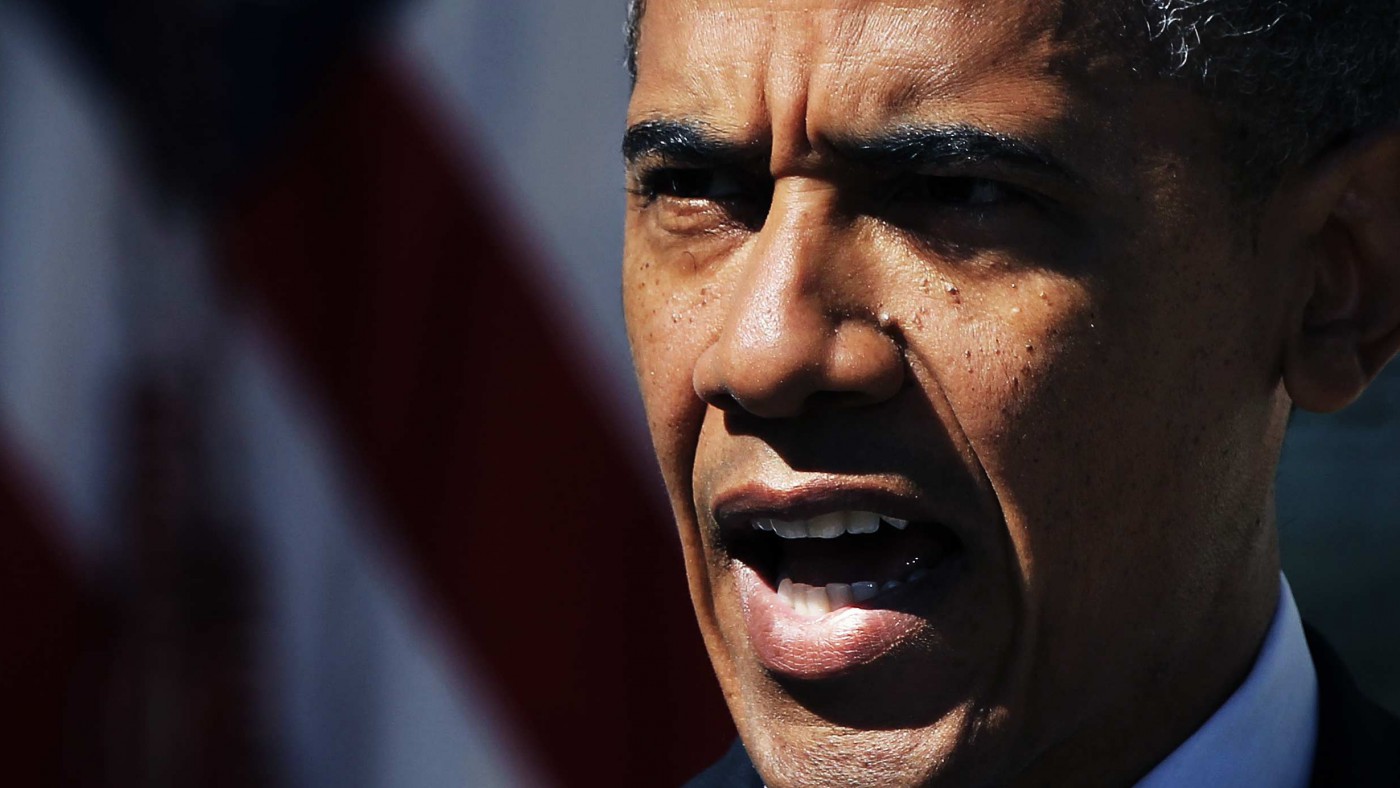Barack Obama relishes heading an imperial-style presidency, lecturing the American people on what is supposedly good for them, on every conceivable issue from healtcare to climate change. He seemingly has little time for Congressional or public opinion these days, as he has demonstrated with his hugely unpopular Iran nuclear deal, which he has already inked at the UN Security Council before US legislators even had a chance to review it. He has little patience either for media scrutiny, recently chastisising senior CBS White House Correspondent Major Garrett, telling him he “should know better” than to question his weak-kneed handling of the situation involving four American hostages held by Tehran.
Not content, however, with telling Americans what to do, he’s now trying to decide Britain’s future as well. In an interview with the BBC, where he directly addressed the Brexit issue, he warned that Britain must stay within, the EU, declaring that the European Union has done wonders for the people of Europe. According to President Obama, Britain’s presence in the European club was vital for US interests in the transatlantic alliance. In Obama’s words, “having the United Kingdom in the European Union gives us much greater confidence about the strength of the transatlantic union and is part of the cornerstone of institutions built after World War II that has made the world safer and more prosperous. We want to make sure that United Kingdom continues to have that influence. Because we believe that the values that we share are the right ones, not just for ourselves, but for Europe as a whole and the world as a whole.”
Barack Obama’s comments are the latest in a series of ill-judged interventions by the White House, State Department, US Ambassadors to London, and his overall administration in the internal affairs of America’s closest friend and ally. They are frankly an insult to the British people, from a president with a track record of undermining the Special Relationship. From standing shoulder to shoulder with Cristina Kirchner’s Argentina over the Falklands to proclaiming France to be America’s strongest partner on the world stage, the Obama administration has a penchant for treating Britain with disdain. It began with President Obama unceremoniously removing a bust of Sir Winston Churchill from the Oval Office within days of starting his presidency, and it’s been downhill from there.
Barack Obama has been the most anti-British president of modern times, but that hasn’t stopped him from pontificating on what he thinks is good for the British people, just as he has lectured the Israelis on why the Iran nuclear deal will enhance their security against the backdrop of a genocidal regime in Tehran that continues to threaten to wipe Israel off the map. In the Obama worldview, if you are an enemy of the free world you deserve the hand of friendship. If you are a US partner, however, you merit a stern dressing-down, and from time to time, a slap in the face.
The Obama presidency’s entire approach on Brexit smacks of condescension as well as talking points that could frankly have been written in Brussels by the European Commission. The White House is content to recycle pro-EU propaganda that comes across as tired, dated and even ludicrous. The suggestion that peace and prosperity in Europe is the result of the European Union is a pipedream that purposely downplays the role played by the NATO alliance and the United States itself in ensuring European security. It was the presence of hundreds of thousands of American troops in Western Europe, combined with the leadership of Ronald Reagan and Margaret Thatcher, that faced down the Soviet Empire and tore down the Iron Curtain. It is extraordinary that a US president continues to dish out talking points that sound like they were written by Jacques Delors in 1985.
The essence of Obama’s thesis is that America requires Britain to be at the heart of Europe, almost as a kind of Trojan horse within the EU promoting US interests. It is a facetious argument that treats Britain as though it were a vassal rather than a partner, and is deeply condescending. Ultimately, Britain must do what is in Britain’s best interest, and that definitely does not entail being trapped inside an increasingly anti-democratic European Union, dominated by Germany and France, that dreams of becoming a highly centralised European superstate. The notion that London has more influence as a member of a 28-nation club, than it does as a free standing global power, is simply ludicrous. Great Britain is a permanent member of the UN Security Council, has the world’s fifth largest economy, is a nuclear-armed power, and retains the best armed forces in Europe – it can survive perfectly well outside of an EU that is sinking amidst a tide of debt, acrimony and self-delusion.
Whether Britain leaves the EU or not is a matter for the British people, not the Obama administration, to decide. President Obama is on the wrong side of history. A British exit from the EU would actually strengthen the Special Relationship with the United States, and enable Britain to be a more powerful partner for America, freed of the shackles of Brussels. The American people should naturally embrace the principles of sovereignty and freedom in Europe, ideals that are at the heart of what the United States is all about. It makes no sense for the United States to back the European Project which is increasingly anti-American in outlook, inward-looking, and supranational in nature. If Britain does leave the European Union, it should be a cause for celebration on both sides of the Atlantic, and Washington must do all it can to ensure that the alliance with Great Britain thrives and prospers, and results in an even greater transatlantic alliance. Britain is far better placed to stand with America outside of the EU than within it, as a truly sovereign nation able free to shape its own destiny.


